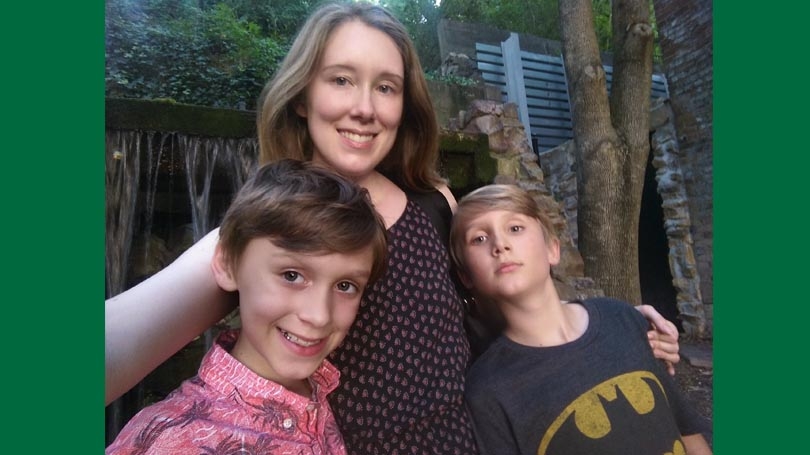
Amy Kennedy is pursuing a PhD in the Program in Experimental and Molecular Medicine
This is part of a series of articles profiling up-and-coming female STEM graduate students on Dartmouth’s campus, in recognition of International Women’s Day on March 8th.
“When faced with becoming a single parent after nearly a decade of being mostly a stay-at-home mom, I had to decide if I was going to return to the food service industry and work my body to death while just paying the bills, or take a risk in trying to pursue a satisfying career I would be able to sustain passion for over the long haul. I chose the latter."
Amy Kennedy is a bold, driven first-year student in the Program for Experimental and Molecular Medicine (PEMM) at Dartmouth. Her educational background shows a keen interest in science: she obtained an associate's degree in psychology in 2009, completed a summer research internship in Germany in 2017, and graduated with her bachelor's degree in chemistry and a minor in biology in 2018.
It was during her research experience abroad that her decision to pursue a graduate degree was cemented and she developed the confidence in and out of the lab to apply at top-tier programs like PEMM. "I had always dreamed of attending an Ivy League school, but never thought they'd want someone like me. Getting an interview alone felt like a miracle and getting the acceptance letter to PEMM was a dream come true."
But there’s more than meets the eye with Amy. She’s the mom of two, and since 2015 has been undertaking full-time undergraduate and graduate student workloads while being the primary provider for her boys. Her endurance has been challenged by chronic health concerns that began while she was pursuing her bachelor's. Providers at Dartmouth’s Dick’s House took her symptoms seriously, and helped Amy develop a treatment plan that has greatly increased her quality of life and increased the amount of time she dedicates to her research. As a rotation student in the lab of Arti Gaur, Amy is currently testing the effect of a novel small molecule on tumors.
When asked how she could be better supported as a woman in science at Dartmouth, Amy points a disparity in female representation in leadership. "My current rotation advisor is fantastic example and an excellent role model as a woman in science, but the higher levels of leadership are still male dominated.” Having more women faculty, especially those with children, would normalize conversations surrounding parenthood in academia. Amy advocates that equitable representation of women at the upper levels of leadership will help shift the culture of parenthood as a weakness to one celebrating the strengths that a unique perspective brings to the table.
Indeed, a new study out of the University of Michigan finds that more than 40% of women with full-time jobs in science leave the sector or go part time after having their first child (Cech and Blair-Loy 2019). This study is one of many that has elevated the conversation surrounding the need for improved support for mothers in STEM, one which particularly resonates with Amy. “I am always cognizant of the legacy of brave and brilliant female scientists who paved the way for me to be where I am today. My goal in my scientific career is to follow in their footsteps, both in promoting scientific excellence and in helping other talented female scientists discover their passion and follow it where it leads."